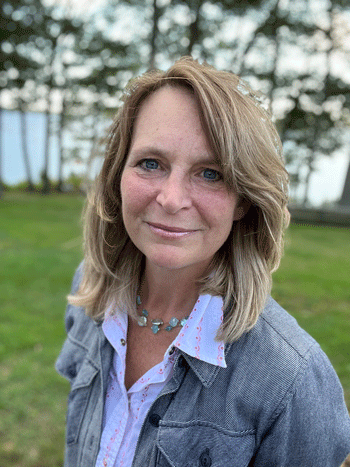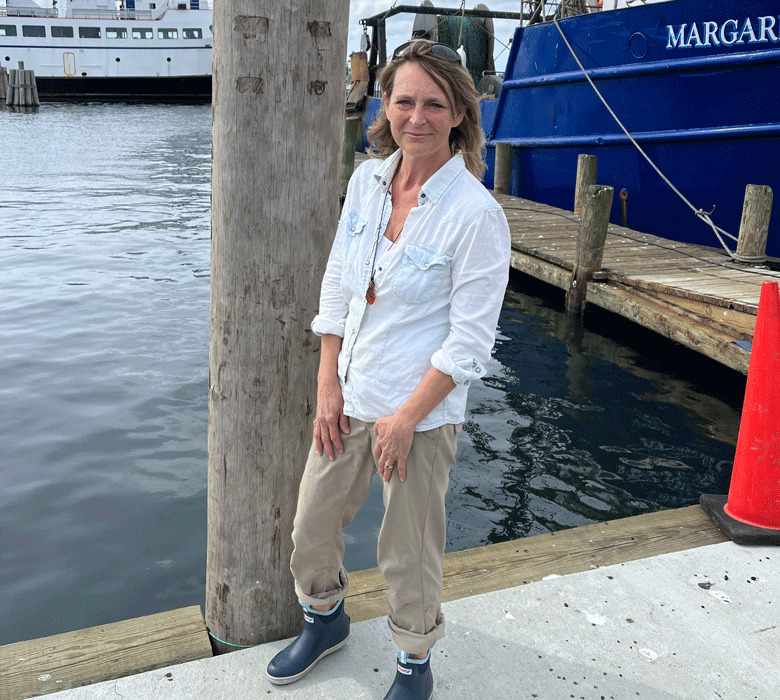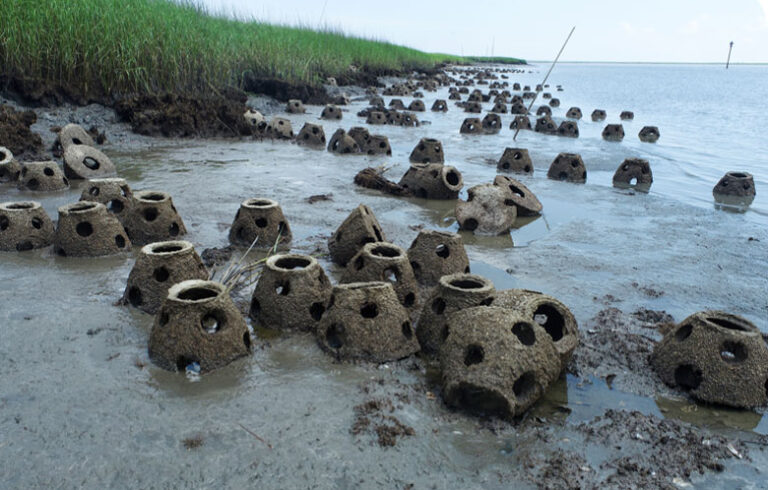Alexa Dayton took the reins as executive director for the Maine Center for Coastal Fisheries in Stonington on Oct. 3.
She has over 25 years of leadership experience with L.L. Bean, Maine Huts & Trails, the Gulf of Maine Research Institute and, most recently, the University of Maine System. That includes 15 years of direct experience in fisheries science and policy, working with fishermen around the U.S. as a leader of the Marine Resource Education Program.
“The vision of vibrant fisheries and sustainable coastal Maine communities forever really resonates with me, empowering the next generation with hope for a bright future and sustainable economic outlook is everything,” Dayton said. “It takes a mix of science, education, and getting out into the community for a lot of listening, to bring this vision to reality.”
MCCF’s 10-person staff works with community and fishery partners to develop collaborative programs addressing topics including climate change, gentrification, and ecosystem management.
We asked Dayton to expand on her ideas for MCCF. Here’s an edited transcript.
Working Waterfront: Where were you born and raised?
Alexa Dayton: I was born in Ann Arbor, Mich., and raised largely in Europe.
WW: What brought you to Maine?
Dayton: I finished my engineering degree at the University of Michigan, went west to explore, became homesick, and returned east. Portland, Maine, spoke to me.
WW: How did you career unfold?
Dayton: I was at L.L.Bean almost 10 years, moving through the ranks and doing direct marketing and catalogue circulation planning in the outdoor business space product areas.
I was with Maine Huts & Trails three years as director of communication and development. At GMRI, I did marine resource education programming for the federal fisheries around the country. That was the source of my interest in fisheries and the marine space.
With the University of Maine System, I was COO for a unit called Maine Center Ventures.
We need to help them see that future so they will stay in the community and continue to keep those fishing traditions alive.
WW: What attracted you to MCCF?
Dayton: During my time at GMRI, I had the pleasure of working with the founders and staff of MCCF in the fisheries convening and education space. MCCF was a collegial, collaborative, neutral arbiter of science, education, outreach, and convening. That was similar to the mission and vision I pursued at GMRI.
WW: How do you view MCCF’s mission unfolding?
Dayton: I want to be sure that what I do is grounded in what the organization believes about itself. Sustainable fisheries and sustainable communities in the Gulf of Maine forever—that vision still holds true and still resonates for everyone. What may have changed is the portfolio of programs.

WW: In what way?
Dayton: The three pillars of collaborative science, collaborative education, and collaborative outreach still hold true. And there are long-term projects and partnerships that carry forward and will remain core to the portfolio. But I think we need to look at how fisheries need to adapt and what we need to provide for education support, adaptation support, business planning support, data and science support.
There are a variety of pressures on the use of the ocean environment. We need to do a lot of listening and convening of our industry. I think we can play a role in enabling dialogues.
WW: What are a few specific projects MCCF will pursue?
Dayton: We have a couple of vessels we’ve been working with that have been testing ropeless gear. We’ll continue to do that and to look at how the economics and management might change. It’s complicated and costly and it takes time to adapt.
There’s a wind energy consortium just beginning in the Gulf of Maine and a roadmap proposal that a number of institutions signed onto. MCCF and institutions like ours can potentially generate data to help understand the ecosystem and provide a baseline before wind companies start to implement programs.
The Gulf of Maine is warming faster than many other places on the globe. The connection between the watershed and ocean have been underestimated. We’ve had an exciting project underway, working with partners to look at watershed issues across the Downeast fisheries. That kind of approach is important for maintaining our ecosystem on a holistic level.
WW: Other projects?
Dayton: MCCF will work toward diversification of marine businesses and helping the industry understand how they can be more efficient.
Yesterday, we had a wonderful kick-off of our Eastern Maine Skippers program, with 45 high school students participating. They have a lot of future ahead of them. We need to help them see that future so they will stay in the community and continue to keep those fishing traditions alive. It’s about that next generation.





